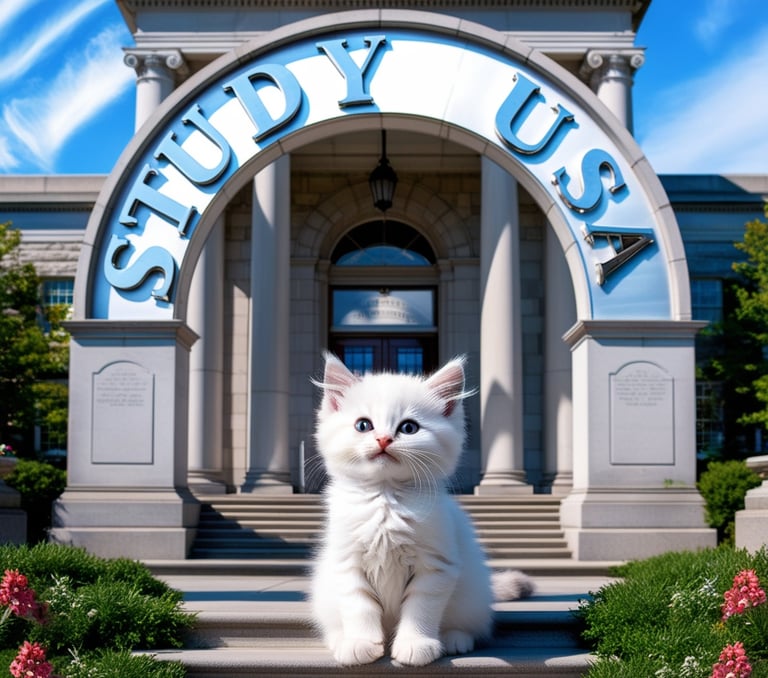
Study in the USA: An Admission Guide
The United States is a global leader in higher education, drawing students from around the world who aspire to receive first-rate academic experiences, engage in pioneering research, and build a foundation for lifelong success. This appeal is well-founded, as the country hosts numerous prestigious institutions that set the standard for educational excellence, such as Harvard University, the Massachusetts Institute of Technology (MIT), and Stanford University. These universities, along with many others, consistently rank among the top worldwide and provide programs covering a wide array of fields and interests. Take help from this US admission guide or US admission Resources.
SCHOLARSHIPS, FUNDING, & ASSISTANTSHIPS
The top U.S. universities offering scholarships, funding, and assistantship opportunities, including Harvard, MIT, Stanford, and Yale. These programs cover tuition, living expenses, and research or teaching stipends. Key funding types include scholarships, fellowships, and assistantships, with competitive test scores (SAT, ACT, TOEFL, Duolingo, GRE, GMAT) often required for eligibility. Institutions like Cornell, Duke, Georgetown, and Penn also provide robust financial aid. Research and teaching assistantships offer stipends and tuition waivers. These opportunities make U.S. education accessible, enabling students to focus on academic goals. Links to explore funding options are embedded throughout for further guidance.


WHAT ARE THE TOP UNIVERSITIES OF THE WORLD?
The world’s top universities are renowned for academic excellence, innovative research, and global impact. Harvard University and MIT consistently lead in rankings, excelling in fields like business, engineering, and technology. Stanford University and Oxford University offer diverse programs and cutting-edge facilities. Cambridge University, known for its rich history, rivals Caltech in STEM innovation. Imperial College London and University College London excel in medicine and engineering. ETH Zurich dominates Europe in technology, while University of Chicago and Columbia University stand out in social sciences. Tsinghua University and University of Tokyo symbolize Asia’s academic prowess.


Why Studying in the USA is the Best Choice
Studying in the United States has long been a dream for millions of students worldwide. The U.S. is a global leader in higher education, attracting students from every corner of the world who seek top-tier academic experiences, cutting-edge research opportunities, and a foundation for lifelong success. This attraction is no surprise, as the country is home to an array of esteemed institutions that have set the benchmark for educational excellence, including Harvard University, Massachusetts Institute of Technology (MIT), and Stanford University. These schools, among many others, consistently rank among the best globally, offering programs that cater to a diverse range of fields and interests.
FAQs: WHY STUDY USA
1. How much does it cost to study in the USA?
The cost of studying in the USA varies depending on the type of institution and program. Tuition fees range from $10,000 to $60,000 per year. Public universities are generally more affordable than private institutions. Additionally, living expenses, including housing, food, transportation, and personal costs, range from $10,000 to $20,000 annually.
Learn more: Study in USA - EducationUSA
Keywords: cost to study in USA, tuition fees USA, affordable universities USA
2. Is the USA a good place to study?
Yes, the USA is a leading destination for international students due to its high-quality education, diverse cultural experience, cutting-edge research opportunities, and globally recognized degrees. Universities like Harvard, Stanford, and MIT are globally ranked for their academic excellence.
Learn more: Why Study in the USA - StudyUSA
Keywords: study in USA benefits, USA education advantages, top universities USA
3. How can I study in the USA?
To study in the USA, follow these steps:
Research Programs: Choose a program and university that fits your career goals.
Prepare for Tests: Take exams like TOEFL, IELTS, SAT, or GRE if required.
Apply: Submit applications to selected universities along with necessary documents.
Secure Funding: Arrange tuition fees and living expenses.
Apply for a Visa: Get an F1 student visa.
Travel: Plan your arrival and accommodation.
Learn more: How to Apply to U.S. Colleges - U.S. News
Keywords: how to apply for USA universities, F1 visa USA, study abroad USA
4. Can I study in the USA for free?
While studying in the USA for free is challenging, it is possible through full scholarships. Many universities offer scholarships to international students based on merit or financial need. Some popular scholarship programs include the Fulbright Program, AAUW International Fellowships, and university-specific scholarships.
Learn more: International Scholarships - Scholarships.com
Keywords: free study in USA, USA scholarships, international scholarships USA
5. Can international students work while studying in the USA?
Yes, international students on an F1 visa can work on-campus for up to 20 hours per week during the semester. After one academic year, students may apply for Curricular Practical Training (CPT) or Optional Practical Training (OPT) to gain off-campus work experience.
Learn more: Employment Options for International Students - USCIS
Keywords: work and study in USA, F1 visa work rules, international student jobs USA, www.dream2usa.net
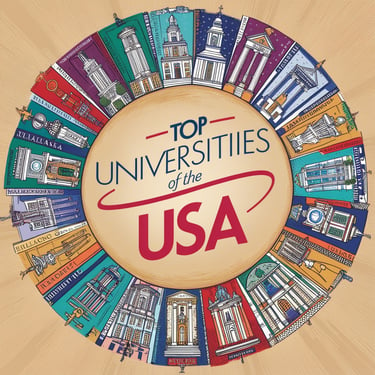

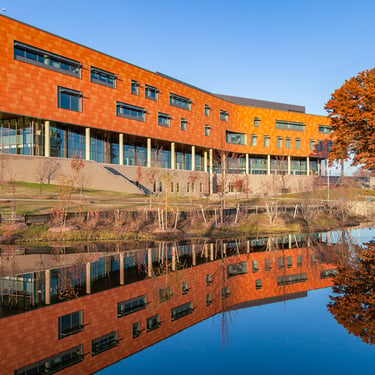
HOW CAN I STUDY IN THE USA?
6. Do I need IELTS or TOEFL to study in the USA?
Most universities require proof of English proficiency through exams like TOEFL or IELTS. However, some institutions waive this requirement if you have studied in an English-medium school or if you meet their alternative criteria.
Learn more: TOEFL and IELTS Requirements - ETS
Keywords: IELTS requirement USA, TOEFL for USA, English tests for USA universities
7. Can asylum seekers study in the USA?
Yes, asylum seekers can study in the USA. They may qualify for in-state tuition and financial aid depending on the state and institution policies.
Learn more: Education for Asylum Seekers - USAHello
Keywords: asylum seeker education USA, in-state tuition for asylum seekers, USA study options for asylum seekers
8. Can I bring my parents to the USA while studying?
Students on an F1 visa cannot bring their parents on a dependent visa. However, parents can visit using a B1/B2 tourist visa.
Learn more: Visitor Visas - Travel.State.Gov
Keywords: bring parents to USA, F1 visa family rules, USA student family visit
9. Can I get a scholarship to study in the USA?
Yes, many universities offer scholarships to international students. Scholarships can be merit-based, need-based, or program-specific. Research and apply early to maximize your chances.
Learn more: Scholarships for International Students - IEFA
Keywords: USA scholarships, study funding USA, international student aid
10. Can I study in the USA with a tourist visa?
No, studying in the USA on a tourist visa (B1/B2) is not allowed. You need an F1 student visa to enroll in academic programs.
Learn more: Student Visa Information - Travel.State.Gov
Keywords: study on tourist visa USA, B1 visa rules, F1 visa USA requirements, www.dream2usa.net
HOW CAN I STUDY IN THE USA?
11. How can I study medicine in the USA?
To study medicine in the USA, you must complete a bachelor's degree in a related field and pass the MCAT. Apply to medical schools accredited by the AAMC. Be prepared for a rigorous selection process and high tuition fees.
Learn more: Medical Education in the USA - AAMC
Keywords: medicine study USA, MCAT USA, medical school USA
12. Do I need SAT to study in the USA?
Yes, most undergraduate programs require SAT or ACT scores. However, some universities have become test-optional.
Learn more: SAT Information - College Board
Keywords: SAT requirement USA, USA undergraduate tests, test-optional USA colleges
13. Can I sponsor my nephew or niece to study in the USA?
Yes, you can sponsor your nephew or niece by covering their financial costs. The student will still need to meet visa requirements and secure admission to a US institution.
Learn more: Student Visa Sponsorship - Study in the USA
Keywords: sponsor study in USA, family sponsorship USA, financial sponsor USA
14. How many foreign students study in the USA?
As of recent statistics, over 1 million international students study in the USA, making it the most popular destination for higher education globally.
Learn more: Open Doors Report - IIE
Keywords: international students USA, USA study statistics, foreign students USA
15. What are the study intakes in the USA?
The USA has three major intakes:
Fall Intake: Begins in August/September.
Spring Intake: Begins in January.
Summer Intake: Begins in May (limited programs).
Learn more: Intakes and Deadlines - Leverage Edu
Keywords: USA intakes, study seasons USA, application deadlines USA, www.dream2usa.net
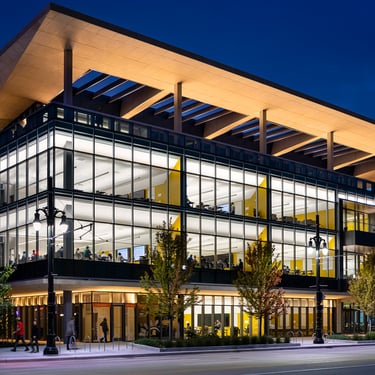


CAN AN F-1 VISA HOLDER WORK IN THE USA?
16. Can F2 visa holders study in the USA?
Yes, F2 visa holders can study part-time in the USA at SEVP-certified schools. However, they cannot enroll in full-time programs unless they change their visa status to F1.
Learn more: F2 Visa Study Rules - Study in the USA
Keywords: F2 visa study rules, part-time study USA, SEVP-certified schools
17. Can H1B visa holders study in the USA?
Yes, H1B visa holders can study in the USA while working. They do not need an additional student visa unless they want to study full-time without employment.
Learn more: H1B Visa Education Options - VisaPro
Keywords: H1B visa study, study and work USA, H1B visa education
18. Can illegal immigrants study in the USA?
Yes, undocumented immigrants can study in the USA. Some states allow them to pay in-state tuition fees, and private institutions may offer financial aid.
Learn more: Education for Undocumented Students - Immigrants Rising
Keywords: undocumented student USA, in-state tuition undocumented, study options for undocumented immigrants
19. Can L1 and L2 visa holders study in the USA?
Yes, both L1 and L2 visa holders can study in the USA without needing additional permits. L2 visa holders may also work while studying.
Learn more: L1 and L2 Visa Study Options - RedBus2US
Keywords: L1 visa study USA, L2 visa study and work, USA visa education rules
20. Can I work while studying in the USA on a tourist visa?
No, working or studying on a tourist visa (B1/B2) is not permitted. You must obtain an F1 visa to study and an appropriate work authorization to work.
Learn more: Tourist Visa Restrictions - Travel.State.Gov
Keywords: tourist visa restrictions, work on tourist visa USA, study and work visa USA
www.dream2usa.net





How is the Education System of USA?
The Transformative Impact of a U.S. Education. Graduating from a U.S. university can be a transformative experience, one that prepares individuals to ignite change across the world. The United States is known for its commitment to academic excellence, innovation, and research-driven education, equipping graduates with critical thinking skills and a passion for discovery. U.S. universities encourage students to think beyond boundaries, questioning norms and exploring new possibilities, which fosters an inventive spirit. Graduates leave not only with expertise in their chosen fields but with the courage to tackle complex global challenges and lead with insight and purpose.
Another unique feature of a U.S. education is its diverse, multicultural environment. Students from various backgrounds come together, exchanging ideas and perspectives that broaden their understanding of the world. This immersion in diversity teaches them to appreciate and adapt to different viewpoints, which is invaluable in today’s interconnected society. Graduates who have studied alongside peers from different cultures are often more empathetic and globally minded, qualities that enable them to lead with inclusivity and respect.
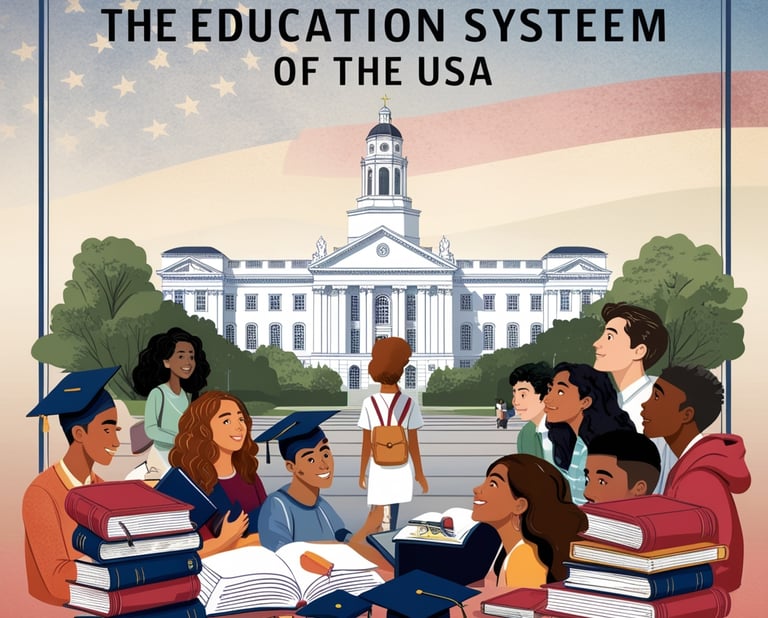

Furthermore, the emphasis on experiential learning in U.S. institutions empowers graduates with real-world experience. Through internships, research projects, and community engagement, students gain practical skills and hands-on knowledge that make them effective in professional settings worldwide. They leave with not only academic knowledge but a sense of confidence and adaptability, ready to make a tangible impact.
Armed with knowledge, experience, and a global perspective, U.S.-educated graduates possess the tools to drive progress and innovation, inspiring and uplifting communities across the globe.
Guidance
Your path to studying in the USA.
cONTACT
Support
bee@usadmission.net
LibGoal© 2024. All rights reserved.







